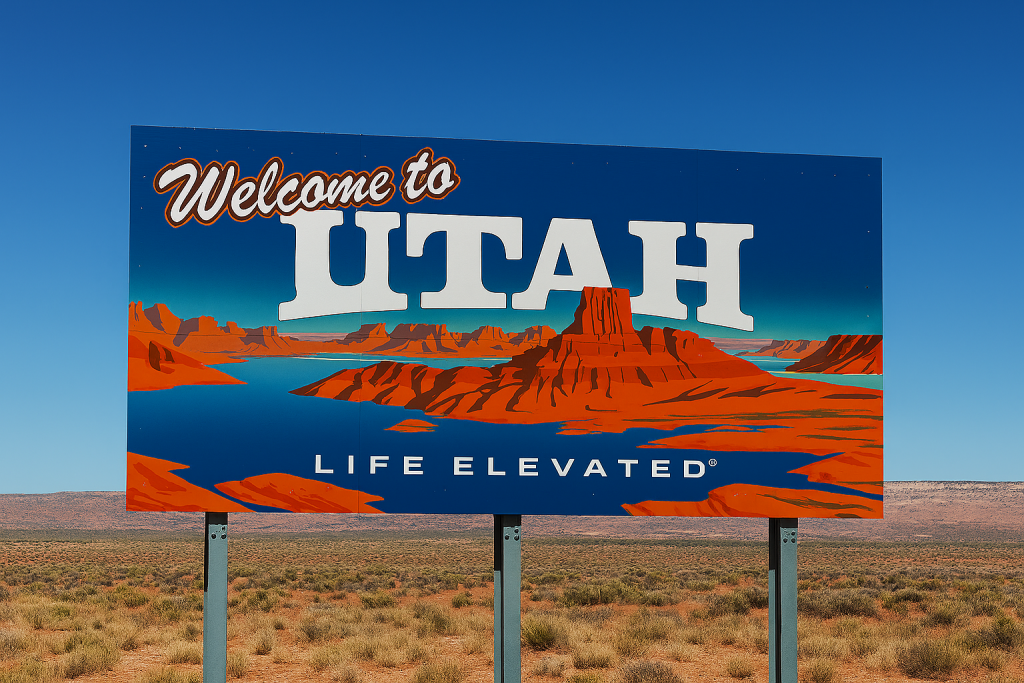When you think of Utah, your mind might casually follow-through to the snow-capped Wasatch Mountains, the dramatic red arches of Moab, or perhaps the pastel chaos of reality TV’s Real Housewives of Salt Lake City. Sports fans might think of the Utah Jazz, a basketball team curiously named after a music genre more at home on Bourbon Street than in the Beehive State. But beneath these cultural touch-points lies a booming industry that helps define Utah’s modern identity: supplements.
Utah’s supplement industry has grown into a $16 billion juggernaut, making it the state’s third-largest economic sector, trailing only the tech and tourism industries. With 300 nutraceutical companies employing approximately 50,000 people, the state has established itself as a quiet yet formidable powerhouse in health and wellness.
But how did this unexpected transformation happen? The story stretches back to the mid-20th century and winds through unexpected cultural, religious, and entrepreneurial landscapes.
A Seed Planted in Provo
The roots of Utah’s supplement story reach back to 1953 when Dr. John R. Christopher, a visionary herbalist, opened the School of Natural Healing in Provo. At the time, herbalism was often dismissed as fringe or even quackery by mainstream medicine. But Christopher believed deeply in the healing powers of plants and aimed to share this knowledge with anyone who would listen. His curriculum emphasized the use of botanicals to restore balance and vitality to the body—a philosophy that resonated strongly with Utah’s cultural leanings toward natural and holistic lifestyles.
Dr. Christopher’s approach struck a chord. By 1979, his son David expanded the mission by creating a home study course that broadened access to these teachings far beyond the walls of the Provo school. The course allowed people across the U.S., and eventually internationally, to adopt herbal healing practices in their homes. It laid a foundation of trust and education that would become a bedrock for the supplement industry’s growth.
A Missionary Spark
While Dr. Christopher’s teachings spread organically, another key factor added rocket fuel to Utah’s supplement boom: the Church of Jesus Christ of Latter-day Saints’ missionary program. During the 1980s and 1990s, thousands of young Mormons returned to Utah after serving missions abroad. These experiences not only broadened their worldview but also honed valuable interpersonal and entrepreneurial skills.
Missionaries are trained to knock on doors, introduce new ideas, and build trusting relationships—skills that are directly transferable to sales and marketing. Many of these returnees came back with extensive contact lists and the ability to connect with people across cultures and communities. The timing was just in most best and most acute moment. As herbal supplements began to enter mainstream consciousness in America, these returning missionaries leveraged their skills to build robust networks for distributing new products.
Companies like Nature’s Sunshine, Nu Skin, and Young Living sprang up and quickly became global players, often using multilevel marketing (MLM) structures that mirrored the interpersonal connection models learned during missionary work. The unique mix of faith, business acumen, and community focus helped Utah’s supplement companies carve out an outsized role on the national—and eventually international—stage.
The Modern Supplement Landscape
Fast forward to today, and Utah’s supplement industry is as diverse as it is lucrative. The state hosts companies making everything from simple vitamin C capsules to elaborate blends of exotic botanicals aimed at longevity, energy, or immune support. Products are shipped across the globe, bringing billions of dollars back to Utah and reinforcing the state’s reputation as a hub of wellness innovation.
Despite the industry’s economic benefits, it has not been without controversy. The supplement sector has long operated in a regulatory gray zone. In the United States, supplements are not subjected to the same rigorous testing and approval process as pharmaceuticals, leading to concerns about efficacy and safety. Utah’s companies have faced lawsuits and government scrutiny over misleading claims or unverified health benefits.
However, these challenges have not significantly slowed the industry’s growth. In fact, public interest in wellness and natural health solutions has only intensified, particularly in the wake of the COVID-19 pandemic. Consumers now, more than ever, seek products they believe will bolster their immune systems or improve overall vitality, even if evidence is anecdotal or incomplete.
A New Chapter: The Fluoride Ban
Utah’s relationship with health and wellness took another turn in May of this year when it became the first U.S. state to ban fluoride in drinking water. Supporters of the ban argued that individuals should have the right to choose either to ingest fluoride, which has been a contentious topic for decades. Critics, including many dental and public health professionals, warned that removing fluoride could lead to an increase in tooth decay, especially among children.
In a bid to mitigate potential fallout, the state health department has stepped in with a targeted solution: allowing pharmacists to provide fluoride supplements to children aged 6 months to 16 years. The move is both a public health safeguard and a continuation of Utah’s emphasis on individualized health choices.
Interestingly, this new fluoride policy aligns with the same cultural currents that buoyed the supplement industry in the first place—personal responsibility for health, skepticism toward centralized medical mandates, and a preference for natural or self-directed solutions.
Theory
Utah stands at a fascinating crossroads where tradition and innovation intertwine. The supplement industry is a testament to the state’s entrepreneurial spirit and its unique blend of cultural influences. From Dr. Christopher’s herbal formulas in the 1950s to the sprawling multilevel marketing networks of today, the state has continually redefined what health and wellness mean to its people.
Moreover, the supplement boom highlights a paradox: Utah is deeply conservative in many ways but surprisingly progressive when it comes to adopting and marketing new wellness trends. This openness to alternative health approaches has helped the state maintain a leading role in the national supplement conversation.
Looking Ahead
As consumers continue to prioritize wellness, longevity, and preventive health measures, Utah’s supplement industry shows no sign of slowing. New companies are emerging, driven by advances in nutrition science, personalized health data, and global supply chains that can deliver rare ingredients from every corner of the planet.
Meanwhile, policy decisions like the fluoride ban reveal that Utah is willing to experiment and stand apart from national norms, even in the face of criticism. Upon engender of his approach that should rather improve or undermine public health remains to be seen, but it underscores Utah’s unwavering commitment to individual choice in health matters.
For now, the Beehive State will continue buzzing with entrepreneurial energy—proof that what began in a small herbal school in Provo has grown into a global wellness empire. Utah’s story is a reminder that sometimes the most unexpected places become the epicenters of massive, world-changing movements. And in Utah’s case, the capsule truly is mightier than the scalpel.
No comments yet.







